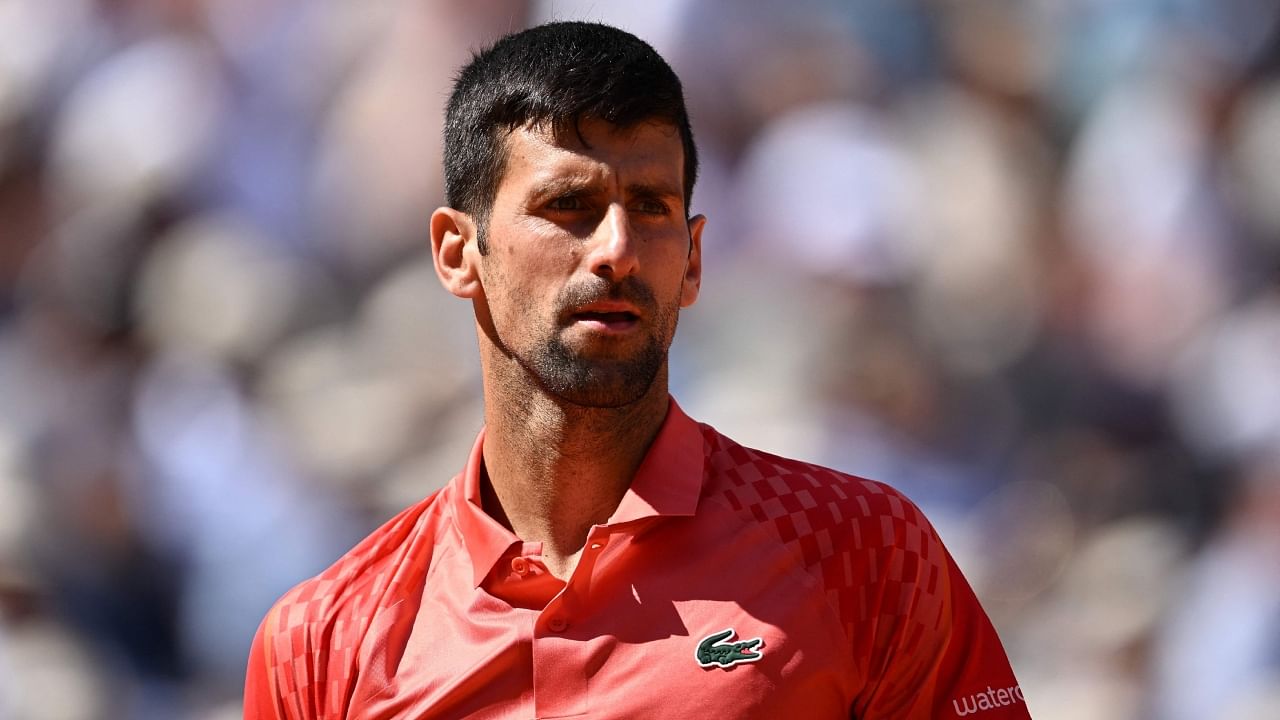
France's sports minister condemned Novak Djokovic on Wednesday after he wrote a message saying Kosovo was at the "heart of Serbia" following his victory in the opening round of Roland Garros.
The Belgrade-born tennis superstar scrawled "Kosovo is the heart of Serbia. Stop the violence" on a camera on Monday in Paris amid clashes between ethnic Albanians and Serbs in the territory.
Kosovo, mostly populated by Muslim ethnic Albanians, broke away from the then-Yugoslavia in the late 1990s and declared independence in 2008, in a move that has never been accepted by neighbouring Christian-majority Serbia or its ally Russia.
French Sports Minister Amelie Oudea-Castera told broadcaster France 2 that Djokovic's message was "not appropriate, clearly".
"There's a principle of neutrality for the field of play. When you carry messages about defending human rights, messages that bring people together around universal values, a sportsperson is free to express them.
"But in this case, it was a message that is very activist, that is very political. You shouldn't get involved, especially in the current circumstances, and it shouldn't happen again," added Oudea-Castera, who is the former head of the French tennis federation.
She added that the director of Roland Garros, Amelie Mauresmo, had spoken to Djokovic and his entourage.
Thirty peacekeepers from a NATO-led force in Kosovo were injured in clashes with ethnic Serb demonstrators on Monday during protests about the installation of ethnic Albanian mayors in northern Kosovo.
With tensions running high, the European Union and other Western countries have called for calm.
Djokovic, ranked number three in the world, has defended his message.
"Kosovo is our cradle, our stronghold, centre of the most important things for our country... There are many reasons why I wrote that on the camera," the 36-year-old told Serb media at the tournament.
"Of course, it hurts me very much as a Serb to see what is happening in Kosovo and the way our people have been practically expelled from the municipal offices, so the least I could do was this," added Djokovic, whose father was born in Kosovo.
Oudea-Castera made a distinction for messages in support for Ukraine in the face of Russia's invasion.
She said she did not put Kosovo and Ukraine "on the same level."
"What's happening for Ukrainians on the circuit is so painful, so difficult," she said.
She supported Ukrainian player Marta Kostyuk who refused to shake hands with Aryna Sabalenka from Belarus which led to boos from the crowd on Sunday.
Belarus has served as a launchpad for Russian attacks on Ukraine and its authoritarian leader Alexander Lukashenko is one of Kremlin chief Vladimir Putin's closest allies.
Kostyuk said she had refused to shake hands over Sabalenka's stance on the conflict, even though the Australian Open champion said in a news conference afterwards that "nobody in this world, Russian athletes or Belarusian athletes, support the war."
"You can understand," Oudea-Castera said of the incident. "Even if you'd like there to always be fair play up to and including the handshake, but there's pain and I respect it."
Djokovic is seeking a record-setting 23rd Grand Slam in Paris and is set to play Marton Fucsovics of Hungary in the second round on Wednesday evening.
The ethics charter of Roland Garros forbids any expression of political or religious views, but neither organisers nor the French Tennis Federation have announced any intention to take disciplinary action against Djokovic.